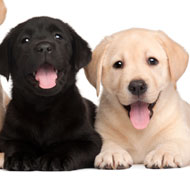
The University of Leicester Students’ Union is introducing a range of novel ways for its students to combat exam stress this week, including puppy petting and bubble wrap popping.
Guide dog puppies will be welcomed to the campus this week, and for a donation of £1 students can pet the puppies and learn more about their work, creating a distraction from the stress of looming exams and deadlines.
Another activity that is due to be implemented this week is bubble wrap popping, which is thought to be more effective in relieving stress then yoga or meditation.
These activities are part of a support scheme for students during exams. Other ways for students to combat their stress will be by playing board games in the SU bar or by taking part in a Chill sowing and growing competition. They can also buy recipe bags containing ingredients for two meals, on sale for £3 as part of the "Hungry for Change" student healthy eating project.
Michael Rubin, education officer and president-elect of the university's Student Union, said: “We know how stressful exams can be and supporting students when it comes to mental well-being is a top priority for the Students' Union.
"Trying to reduce stress through providing revision help through our Education Unit, petting puppies and working with Nightline to hand out free tea to keep energy levels up are all really important, positive things for us to do. We hope students will find them helpful and make revision a little bit easier”.
Second-year Media and Sociology student Nia Phillips, who is currently revising for her exams, added: “I think It’s incredibly important that the university shows enthusiasm in supporting the mental health of students, especially throughout the exam period when stress levels can reach their ultimate peak.”



 The Veterinary Medicines Directorate (VMD) is inviting applications from veterinary students to attend a one-week extramural studies (EMS) placement in July 2026.
The Veterinary Medicines Directorate (VMD) is inviting applications from veterinary students to attend a one-week extramural studies (EMS) placement in July 2026.